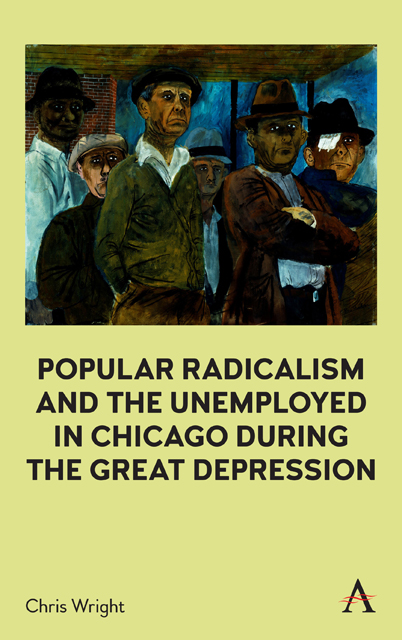Chapter One - Overview
Published online by Cambridge University Press: 09 December 2022
Summary
In retrospect, it is easy to observe the clouds gathering before the whirlwind was unleashed in 1929–30. In early 1928, the Salvation Army in Chicago had a breadline of 200–600 people every day. “The horde of ‘boes and panhandlers infesting the Loop,” one writer complained, “makes New York's Times Square parasites seem like a coterie of philanthropists in comparison.” A more sympathetic entity, the United Charities, appealed desperately for funds with which to help the unemployed, the many thousands of men in Chicago who had been out of work for months. Eviction notices coming to the attention of the United Charities had, by February 1928, increased from about ten a month to two or three hundred. Job seekers streamed in from Detroit, from the South, from depressed agricultural areas of the Midwest, exacerbating the problem such that already in the fall of 1927 there were at least 100,000 jobless in Chicago. The following March, the Communist Unemployed Council of Chicago led a demonstration of hundreds around City Hall who carried banners declaring “Our Children Are Hungry” and “200,000 Men Out of Work in Chicago.” Mounted police swung clubs, yanked speakers down from their perches, and arrested leaders, until the gathering was dispersed and the frightened noonday shoppers could resume their business.
Unemployment lessened that year as the weather warmed, but it was clear, or should have been, that underneath the glittering façade of this second Gilded Age was a deep economic rot that was affecting millions. In the spring of 1928, the American Federation of Labor estimated that an average of 18 percent of its membership was unemployed—12 percent in Chicago, 23 percent in New York, and 36 percent in Cleveland. And since this elite minority of workers could get help from unions in securing and keeping jobs, the percentage among the unorganized was surely higher. A study by the National Resources Committee estimated that 12 percent of workers in 1927 and 10 percent in 1929 were jobless, but many more must have experienced the condition temporarily and even more worked only part-time. Seasonal fluctuations grew espe¬cially severe in the late 1920s, but even in “good times” work was unsteady for at least a quarter of the working population.
- Type
- Chapter
- Information
- Publisher: Anthem PressPrint publication year: 2022



